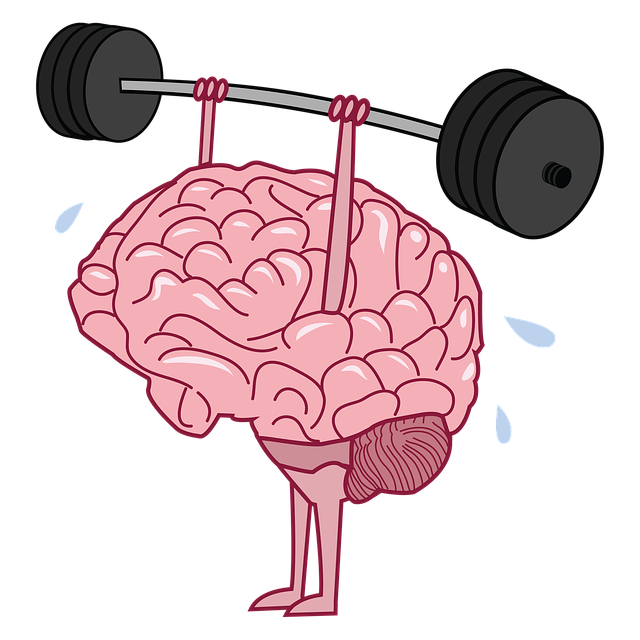Stress management through Acceptance and Commitment Therapy (ACT) is crucial for early childhood development, aiming to prevent long-term mental health issues. ACT teaches children to accept emotions, align actions with values, and cultivate empathy, empowering them to handle challenges effectively. Tailoring stress management strategies to developmental levels, including mindfulness exercises, art therapy, and age-appropriate ACT conversations, fosters resilience and healthy coping mechanisms in young children. This holistic approach, combined with culturally sensitive mental healthcare, seeks to reduce stigma and ensure access to therapeutic support for improved emotional well-being.
Stress management is a vital skill for young children to develop, given the potential long-term impacts on their mental health. This article explores the importance of effective stress management techniques for kids, focusing on Acceptance and Commitment Therapy (ACT) as a transformative approach. We’ll guide you through understanding childhood stress and its implications, introducing ACT’s principles, and providing practical strategies to teach young learners valuable stress management skills.
- Understanding Stress in Young Children and the Need for Effective Management Techniques
- Introducing Acceptance and Commitment Therapy (ACT) as a Transformative Approach for Kids
- Practical Strategies to Teach Stress Management Skills to Young Learners
Understanding Stress in Young Children and the Need for Effective Management Techniques

Stress is an inevitable part of life, but for young children, it can be particularly challenging to manage and understand. Children often struggle to articulate their feelings, which can lead to prolonged and intense stress responses. This is especially true if they are experiencing trauma, anxiety, or other mental health concerns. The need for effective stress management techniques in this age group is crucial for several reasons. Firstly, early intervention can prevent the development of long-term mental health issues. Young minds are malleable, and with the right tools, children can learn healthy coping mechanisms that will benefit them throughout their lives.
Acceptance and Commitment Therapy (ACT) has emerged as a game-changer in this domain. ACT is a form of behavioral therapy that encourages individuals to accept their emotions rather than fighting them, while also committing to actions that align with personal values. This approach can be particularly beneficial for young children, helping them develop resilience and a sense of control over their lives. By teaching them mindfulness practices and value-based goals, ACT supports the formation of positive psychological habits, fostering overall well-being. Additionally, advocating for better mental health policies, including increased access to therapy for young children, is an essential aspect of reducing the stigma surrounding mental illness and ensuring that kids receive the support they need.
Introducing Acceptance and Commitment Therapy (ACT) as a Transformative Approach for Kids

Acceptance and Commitment Therapy (ACT) is a transformative approach that has gained significant attention in recent years, especially as a powerful therapy for young children. This innovative mental health treatment focuses on helping kids accept their emotions and thoughts without judgment while committing to actions aligned with their personal values. Unlike traditional talk therapy, ACT encourages children to develop a more flexible mindset, fostering emotional resilience and improved mental wellness.
By integrating compassion cultivation practices into its framework, ACT promotes the development of empathy and self-compassion in young individuals. This approach has been featured in various mental wellness podcast series, highlighting its effectiveness in promoting emotional well-being promotion techniques for children. Through engaging activities and evidence-based strategies, ACT enables kids to navigate challenging situations with increased awareness and a sense of purpose, setting them up for long-term success and overall happiness.
Practical Strategies to Teach Stress Management Skills to Young Learners

Teaching stress management skills to young learners involves practical strategies that cater to their developmental stages. Start with simple mindfulness exercises like deep breathing and guided visualizations, which can be incorporated into daily routines. These techniques help children recognize and manage their emotions effectively. For instance, a brief moment of silent breathing or a short walk in nature can serve as powerful tools to calm down and refocus.
Integrate these practices within engaging activities such as art therapy, storytelling, and play. Art can provide a non-verbal outlet for expression, while narratives can help children understand and process complex emotions. Acceptance and Commitment Therapy (ACT) principles can also be introduced through age-appropriate conversations about accepting feelings without judgment and committing to actions that align with personal values. This holistic approach, coupled with cultural sensitivity in mental healthcare practice, ensures that young learners develop resilience and learn healthy coping mechanisms early on, thereby preventing burnout in the long term.
Stress management techniques teaching plays a pivotal role in fostering resilience among young children. By integrating Acceptance and Commitment Therapy (ACT), educators can equip kids with effective tools to navigate stress, promoting both mental well-being and overall development. Practical strategies, tailored to their learning style, empower young learners to recognize and manage stress, ensuring they thrive in a demanding world. This holistic approach not only enhances their present coping abilities but also paves the way for a brighter, less anxious future.









